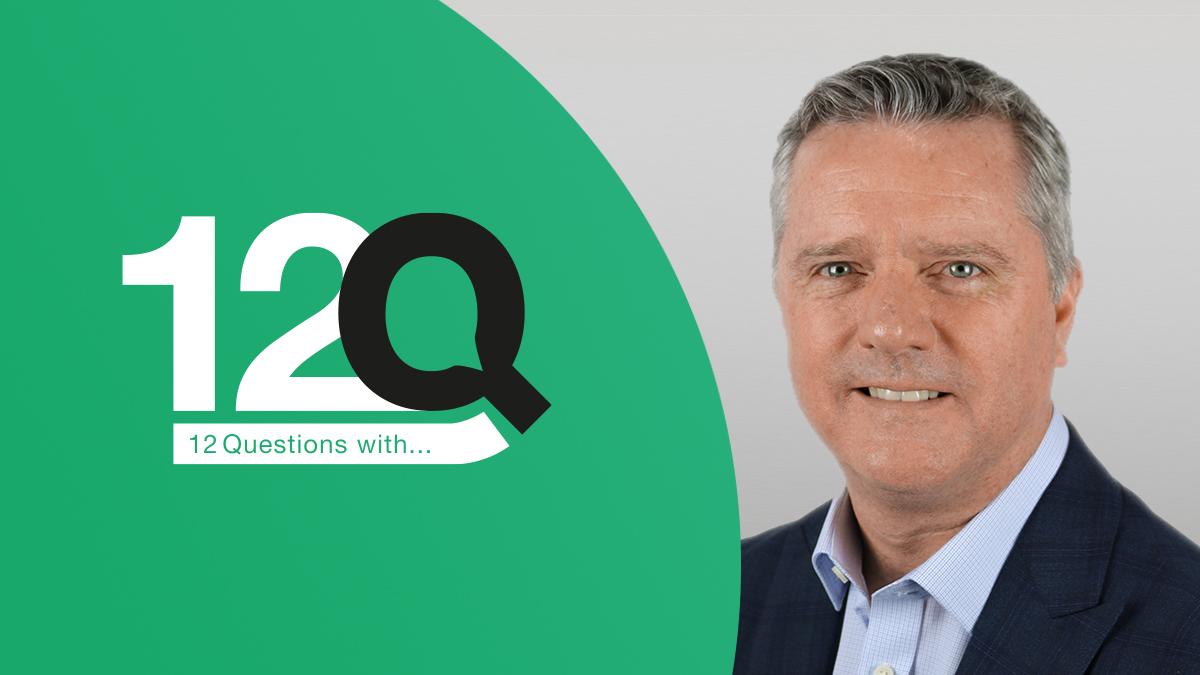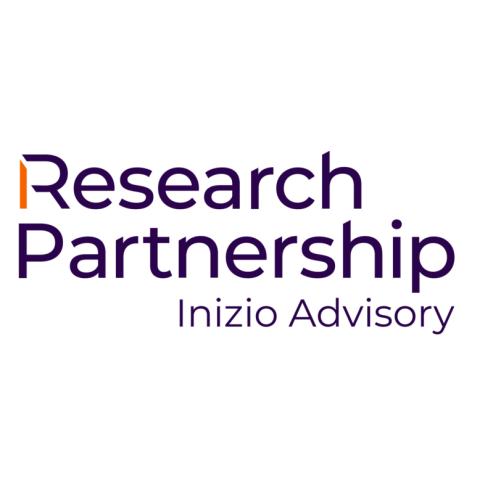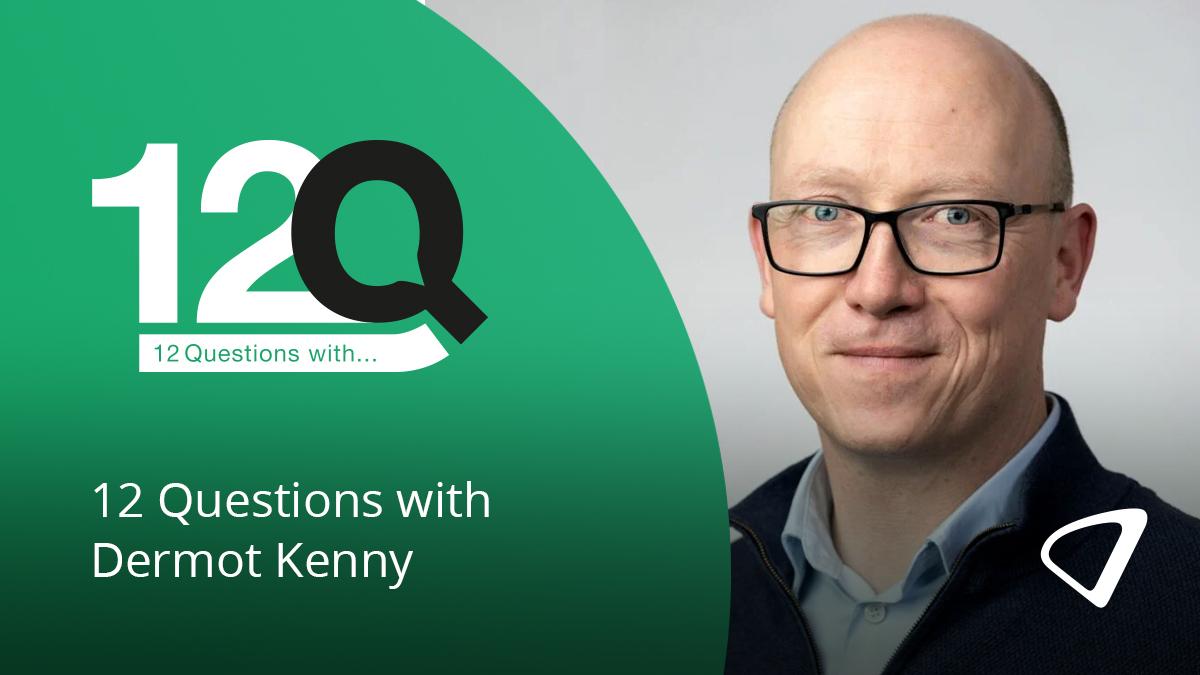12 Questions with Gareth Phillips

12 Questions with Gareth Phillips
Gareth Phillips was recently appointed CEO of healthcare market research agency, Research Partnership. He was previously UK Managing Director and Head of EMEA for Ipsos, where he spearheaded a transformation of the healthcare business in Europe. He has a wealth of global experience, having spent 25 years in healthcare market research working with IQVIA and Synovate Healthcare, where he held roles based in the US, the UK, and Asia.
What are the main responsibilities of your current role? I was recently appointed CEO of Research Partnership, a business I have long admired and, through delivering excellent work to clients over the past 25 years, one that has been able to consistently grow and mature into the very strong business that it is today. This provides an excellent foundation for the next stage of our journey within Inizio.
We are now embarking on a new growth strategy within the Inizio ecosystem, where we have the opportunity to build on our heritage and grow new business together with colleagues focused on areas such as strategy consulting, medical affairs, communications development, real-world evidence, and data analytics. Achieving this will be one of my key responsibilities as CEO.
We are still at the early stages of understanding how we might integrate our skillsets across Inizio, to bring additional value to our clients. However, I believe what we have at our fingertips across the group has the potential to be incredibly powerful.
What is your background prior to this role and how did it prepare you for the work you do now? I’m proud to have been a market researcher for my whole career and consider myself to be fortunate to have found the right career early in life. I have always enjoyed statistics, data, understanding people, and bringing clarity to situations where it is lacking. Despite not being a scientist, I also found healthcare early in my career and never looked back; for me, it has been a privilege to work at the cutting edge of medical innovation and support clients who are making a tangible difference to patients’ lives.
What is your proudest professional accomplishment to date? I am proud of being able to help others find focus and achieve success in their careers and am a firm believer that successful teams deliver more than the sum of their individual parts. In other words, I focus on developing teams that trust each other, work together, and play to their collective strengths.
I also believe in seizing opportunities which take me out of my comfort zone. For example, the experiences I gained living and working in the US and Asia were significant in terms of developing my global perspective, cultural awareness, and providing me with rapid leadership development opportunities. I would not be the person I am today had I not been bold and taken the challenging route at several stages through my career.
What are some of the biggest ongoing challenges in your work? Recruiting talent remains an ongoing challenge and this is not just unique to healthcare market research, but applies across many industry sectors. At Research Partnership, we continue to invest heavily in bringing entry level staff into the profession and training them to provide our market researchers of the future. We are also increasing our focus on training programmes targeted to our mid and senior team members in order to support faster development of their skills and experiences. Like many organisations, we are also embracing flexible working options at RP in order to widen the available talent pool as much as possible. This includes full remote working, and investing in our off-shore hubs, as well as our other offices around the world.
What is your personal mission statement? What values keep you centred in your work? To be a successful leader. Leaders are successful in different ways, and I have taken inspiration from many different styles of leadership over the years. However, the underlying basis of strong leadership for me is authenticity – understanding yourself and being yourself at all times. I also believe that mutual trust is an important leadership foundation that helps to foster an environment of healthy challenge, debate, and diversity of thinking among teams, leading to new ideas and growth. One of the most important roles leaders should fulfil is to signpost the way forward, the vision, bring clarity on what is most important to do, and bring belief and confidence to the whole team.
What are your biggest short-term goals for this year and next year? My big focus will be on company culture. We already have some very positive aspects to the culture at Research Partnership, so protecting and nurturing it will be one of the most important things I do over the coming years. I believe that with the right culture, a lot of other things will take care of themselves, and therefore our culture will have a significant impact on our future success.
What do you see as the biggest challenges facing the industry right now? The healthcare sector proved to be resilient through the pandemic, however, we also saw an acceleration of several positive developments across the industry. This included greater efficiencies around drug discovery and approval, clinical trials, commercial operations, integrated care, etc., which has been very positive to see. However, when we look across other industry sectors, such as financial services and the tech sector, for example, it is clear that pharma and healthcare are still at relatively early stages of evolution and maturity. Much more can still be achieved to enable greater operational efficiencies and stronger customer-centric and patient-centric business models. The urgency with which this happens will depend on the economic, social, and political pressures we face over the coming years.
With this, come major opportunities for healthcare market research, which continues to provide a key benefit to our clients in terms of understanding markets, people, and the wider business context, so that we can support fact-driven business decision-making. Our opportunity as an industry is to ensure that we evolve our research tools, our agility, our access to data, our industry knowledge, and business skillsets, so that we can improve the understanding and advice we are able to bring to our clients – we have to remain relevant and connect the dots as much as possible.
What excites you most about current industry trends? One of the more interesting developments for life sciences as a result of the pandemic, has been how public “trust” in the sector has grown, in particular pharma. Pharma is now one of the most trusted industry sectors globally, according to recent opinion polling. It will be interesting to see how we will be able to maintain these levels of trust over the years ahead and use this to our advantage.
How has the COVID-19 pandemic changed your work or your workplace culture? We have clearly seen an acceleration towards flexible hybrid working becoming more normal. However, I believe we are still learning and working through what the optimum approach to our working weeks will be. There is a reality, given the nature of what we do, that most of us need to be available during core working hours for our clients and for each other, but a lot of our regular activities can still be achieved by working remotely.
Flexible working provides quality-of-life benefits for many individuals, yet, we are also seeing benefits to employers, such as opening up access to a wider talent pool, improving staff retention, and other areas we have yet to fully see the benefit of, such as helping us to make faster progress against our DEI objectives, and perhaps even lower overheads on office space! That said, as we work less regularly in offices, we need to invest more deliberately in building up and maintaining our networks and relationships with our teams and colleagues. This is best achieved through focused in-person time and I believe is especially important for those at the start of their careers. In practice, this means investing more in regular social interactions, in-person training, and co-working activities which bring us together on a regular basis throughout the year. Like many organisations, we are still experimenting and there is much to learn from what others are doing. However, I believe we are heading in the right direction in terms of creating a better working environment for everyone.
How has digital technology changed your work or workplace culture? The market research function has been constantly evolving and improving since its creation decades ago. Today we are pressured by the need to deliver more rapidly, with greater agility and deeper context. We are expected to make greater use of technology, understand data sets beyond primary research surveys, including unstructured data assets, such as social listening, as well as make more use of client-specific data assets. Our roles as market researchers are increasingly focused on making sense of multiple sources of data and knowledge and being able to clearly articulate the “so what” through concise storytelling. Much of our time is focused on ensuring we have access to the right technology, data, and skillsets to be able to add value to our clients’ decision making.
Do you have any pets? What are their names and what are they like? My family and I have a chocolate Labrador called Poppy. Invariably, she is what gets me out of bed in the morning, when she comes looking for her breakfast.
What is your all-time favourite book? The best business read I have had recently is a book called ‘Fortitude’ by Bruce Daisley. It's a really great perspective on building collective resilience, which is so important in life and work these days. He also runs a great podcast on making work better, which I'd highly recommend.
Connect with Gareth Phillips on LinkedIn.












